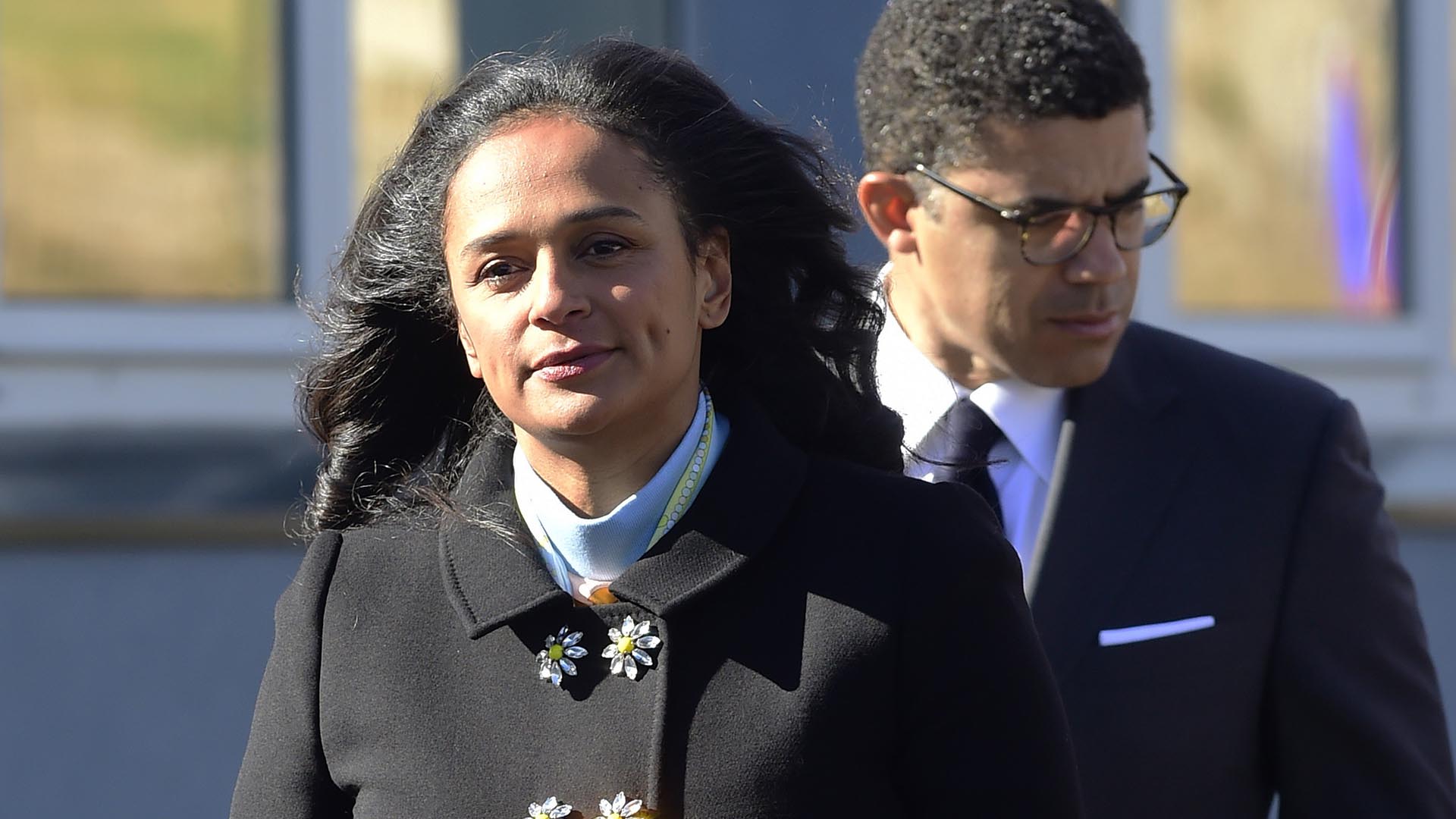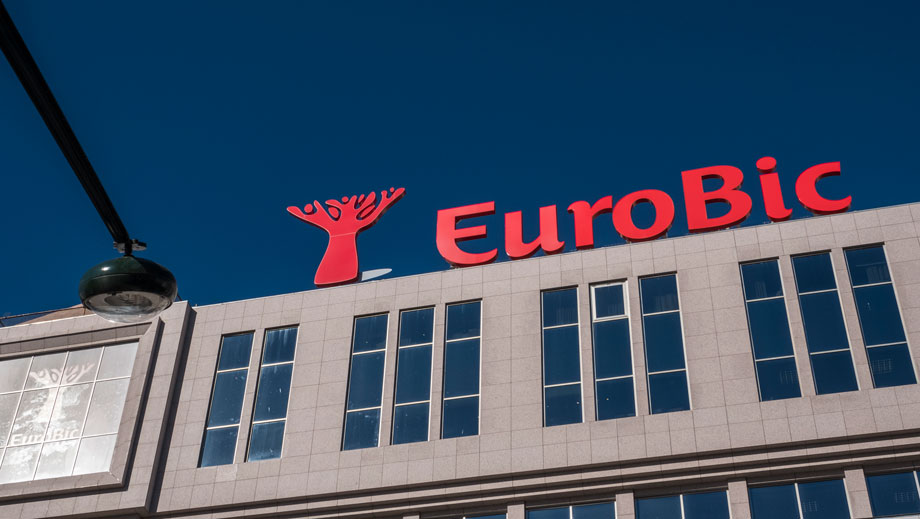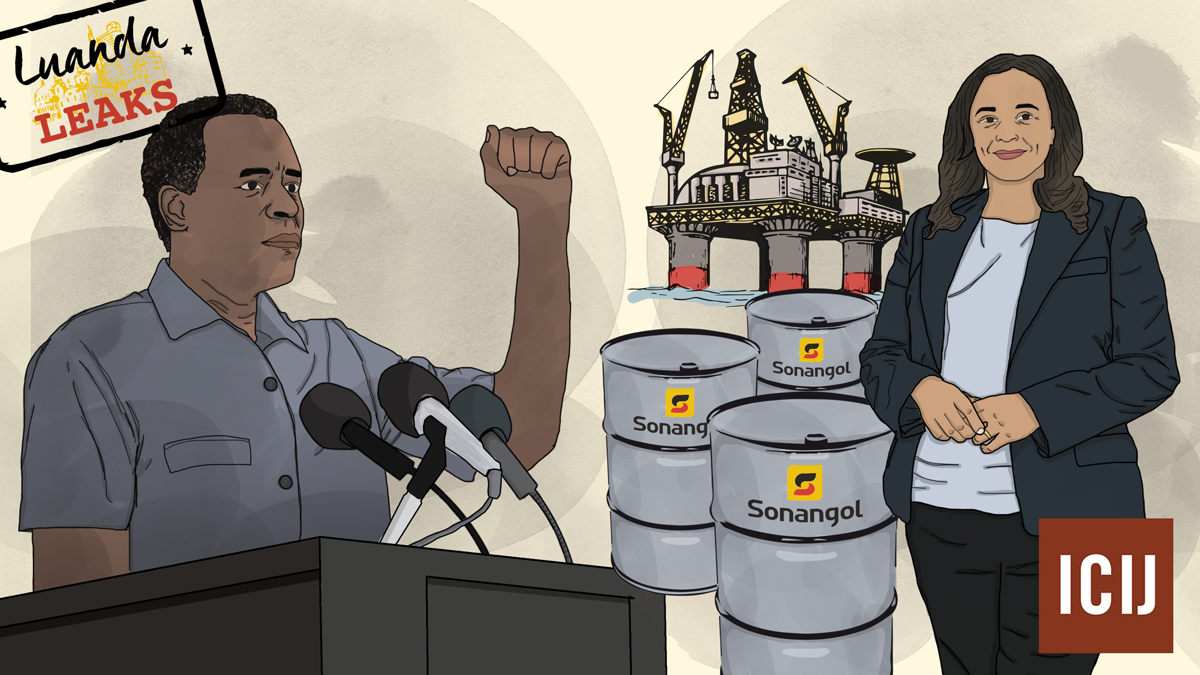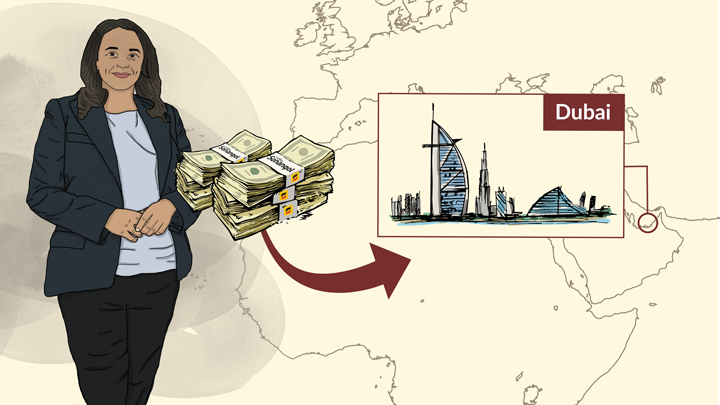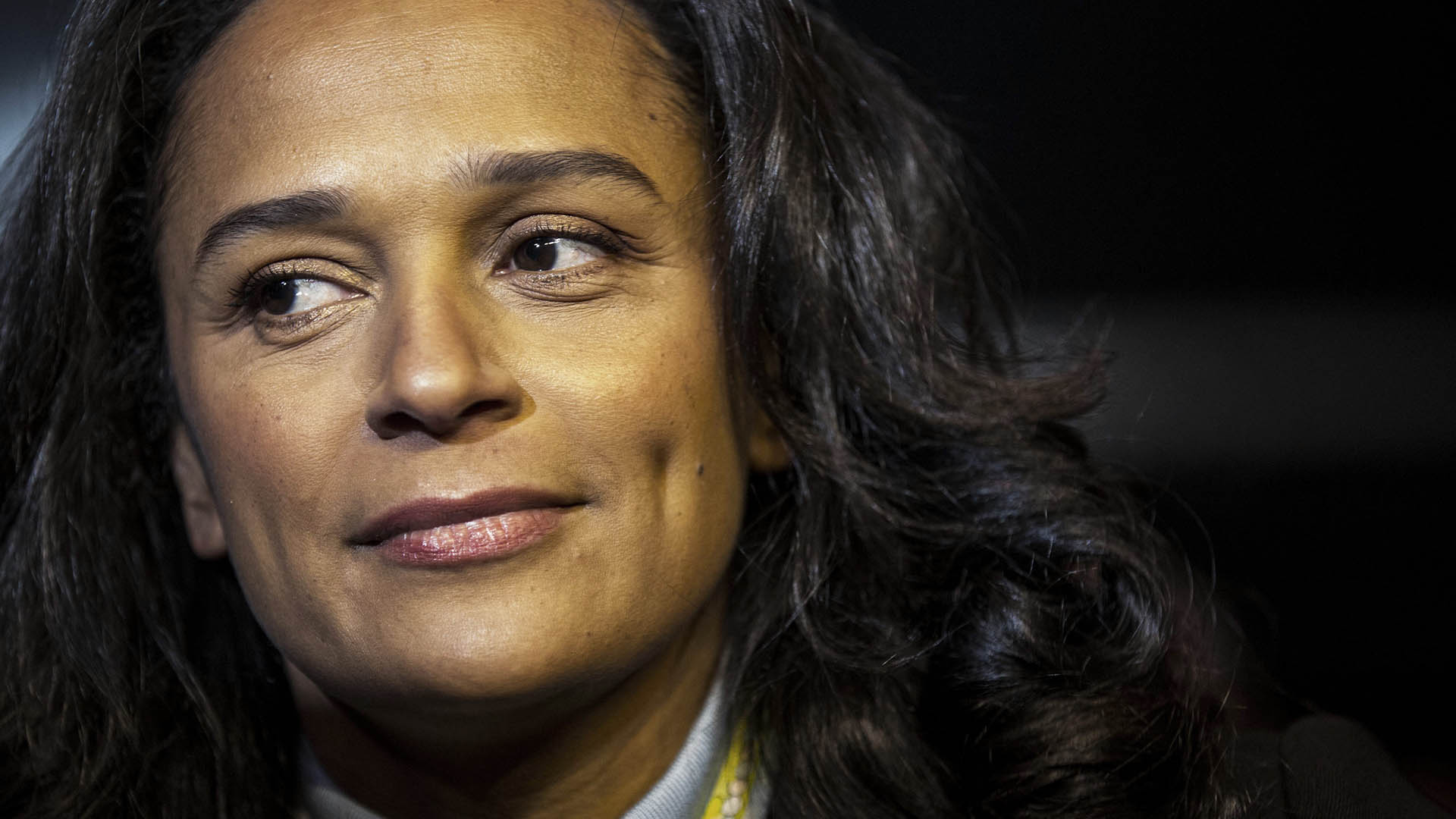Mismanagement by directors and forged documents enabled Isabel dos Santos to illegally divert 52.6 million euros from the Angolan state oil company to one owned by her and her husband, a Dutch court has ruled.
The Enterprise Chamber, a special division of the Court of Appeal in Amsterdam, found the money had been siphoned from oil company Sonangol via Dutch private limited companies to benefit dos Santos.
The ruling echoes findings by ICIJ and partners in the Luanda Leaks investigation and validates a damning report from a court-appointed director of Esperaza Holding BV, a vehicle used by Sonangol to buy shares in Galp, the Portuguese energy firm.
That report concluded that the 2006 sale of 40% of Esperaza to Exem Energy BV, a company owned by dos Santos’s husband, Congolese businessman Sindika Dokolo, was “an act of corruption” and should be voided.
The Enterprise Chamber ruling, which is yet to be published, was shared with ICIJ by the Dutch publication NRC.
Esperaza is a holding company in which Sonangol held all the shares. At the end of 2006, Sonangol sold 40% of its Esperaza shares and delivered them to Exem, of which dos Santos and/or her husband Dokolo had always been the ultimate beneficial owners, the court said. Dokolo died in October 2020 in a diving accident off Dubai.
Dos Santos is the daughter of Jose Eduardo dos Santos, who ruled Angola from 1979 until September 26, 2017. She and her allies benefited from lucrative deals in oil, diamonds, telecommunications, banking and real estate under his rule.
After her father’s resignation as president, a dispute arose between Sonangol and Exem over the legality of the acquisition of the 40% interest of Exem in Esperaza. That dispute was settled in favor of Sonangol in 2021 by a tribunal of the Netherlands Arbitration Institute.
According to the tribunal, the acquisition was void for being “contrary to public order and morality” because — in short — the award was corrupt.
Meanwhile, in 2020, at the request of Sonangol and others, the Enterprise Chamber ordered an investigation into Esperaza’s affairs from January 1, 2017.
On Nov. 15, 2017, the newly elected Angolan president João Lourenço fired Isabel dos Santos as chairman of the board of Sonangol as part of what he said was an anti-corruption crackdown.
The Dutch investigation found she had false resolutions signed to channel 52.6 million euros (about $57 million) in dividends from Esperaza Holding BV to her own company and that she attempted to conceal this illegal transfer by backdating resolutions to support it till before she was fired.
The court said that it was established that “all persons who signed one or more decrees knew that these were backdated.” It said that two of the company directors should have realized that dos Santos “was illegally attempting to make a quick dividend payment before she was no longer able to do so” through the use of backdated and forged resolutions.
The ruling is an interim step in a long-running attempt by the state-owned company Sonangol to recover the stolen millions.
“The ruling of the Enterprise Chamber is of great importance for this liability case,” says Maarten Drop, lawyer for Sonangol. “It is an important boost in Angola’s fight against the corruption of dos Santos.”
ICIJ detailed the origins of the Galp acquisition in Luanda Leaks, an investigation into how the eldest daughter of former longtime Angolan ruler José Eduardo dos Santos had amassed a fortune in one of the world’s poorest countries.
ICIJ and 36 media partners showed how Western financial firms, consultants, lawyers and accountants had helped dos Santos profit from her father’s rule of Angola and two decades of corrupt deals that had left the diamond-rich nation one of the poorest in the world.
The journalists were aided by 715,000 documents, called the Luanda Leaks, which were provided by a whistle-blower, Rui Pinto, to the Platform to Protect Whistleblowers in Africa and shared with ICIJ, which led the subsequent investigation.
ICIJ showed how Sonangol had bankrolled Exem’s purchase from Esperaza of a shareholding in Galp, for $99 million, agreeing to an upfront payment of just $15 million with the remainder due by December 2017.
Previously, the Enterprise Chamber of the Amsterdam Court of Appeal ruled to freeze the shares Exem acquired in 2006 when it purchased the 40% stake in Esperaza from Sonangol.
The court had also ordered the removal of Mario Silva, a key dos Santos business associate and Exem representative, from Esperaza’s board and confiscated future dividend payments to the company, pending the outcome of its investigation.
The Angolan government is trying to recover about $1 billion in assets from Isabel dos Santos. Interpol has issued a red notice calling for her provisional arrest.
She has previously denied benefiting unfairly from her father’s position as Angolan president or any other wrongdoing.
